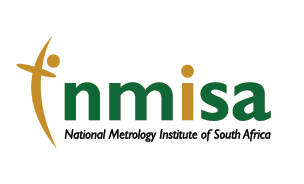Africa Reference Institute
The Africa Reference Institute (ARI) is positioned to be a regional institute with authoritative expertise dedicated to providing thought leadership, access to advanced technologies, and reliable application information in fields critical to economic growth and social development in South Africa and the region. Its services include reference measurements and analysis, consultation, and specialist advice, as well as training.
The institute strives to assist government entities by supporting the development of policies and regulations with impartial, reliable data. Furthermore, the reference institute aims to assist companies in improving the performance of their products, gaining efficiencies in production, and developing reputable African brands. This is to enhance the ability of local producers to compete in the international market.
The ARI plays a key role in enabling NMISA to contribute to a common and reliable African measurement system in support of Africa Continental Free Trade Area (AfCFTA) objectives, policies, and regulations.
The fields of operation of the ARI in measurement science and related technologies to meet the needs of South Africa, the SADC region, and the African Continent as a whole are:
- Materials Science and Services
- Agriculture, Food and Feed Safety and Food Labelling
- Environmental Monitoring and Waste Management
- Health and Safety
- Law Enforcement
- Digital Economy
- Energy Efficiency
- Training and Knowledge transfer
It fulfils its mandates through the following Centres:
Analytical Reference Measurement Laboratory (ARML)
The focus of this centre is to be the industry's go-to national centre for fit-for-purpose measurement solutions. The analytical reference measurement services will address a wide range of analyses that identify and quantify chemicals, materials, agricultural, food and environmental samples. The analytical reference measurement services will address a wide range of contaminants and/or target analytes in environmental, drug-based and food/feed-related matrices.
Surface and Structure (characterisation of materials) reference measurement services are well established.
Lighting Efficiency reference measurements are being established to meet new regulatory specifications for LED lighting to provide a combination of photometric and electrical parameters.
Industrial Metrology Laboratory (IML)
The IML will establish a multi-functional calibration service hub focused and geared towards solving industry calibration problems and ensuring accurate measurement for those sectors requiring traceability for conformity assessment purposes, especially SMEs and SADC region.
Calibration maintenance and development remain as the scientific metrology focus for traceability to the SI. The purpose of the IML calibration facility is to enable applied calibration as a streamlined fast turnaround service to clients in support of the various industry sectors as outlined in the Department of Trade, Industry and Competition (the dtic) Master Plans.
The IML has a Law Enforcement unit that encompasses the evidential breath alcohol calibration and the calibration of speed-trapping equipment. This laboratory plays a significant role in serving the needs of medical practitioners through the calibration of blood pressure meters, thermometers, intravenous drips, etc.
In support of the analytical reference measurements, the laboratory provides gas flow, temperature and humidity measurements, and calibrations. In addition, the centre offers services in LED luminaires, Lux meters, household gas meters, and electrical calibration for industry.
Training Centre
Aligned with the Africa Reference Institutes' vision to act as an effective vehicle to drive the improvement of analytical competence and capabilities, the Training Centre provides the platform to engage in training endeavours that support the various industry sectors be it private, research, academic or Government. The training courses and consultancy services are aimed at improving the standards and performance of calibration and testing laboratories locally and in Africa by providing apposite training in the relevant fields of chemical metrology, physical metrology, and engineering related to metrology. The training courses provide upskilling and advanced training to trainees, whether to enhance students' knowledge or to provide scientists with increased problem-solving skills. This includes qualified scientists who have a vested interest in improving their skills in the workplace and for stakeholders, regulators, and SMMEs as identified.
Reference Material Production Centre (RMPC)
The RMPC was established to provide Africa with relevant quality control samples, reference materials and certified reference materials (matrix and in solution) intended to support testing laboratories that need to build trust and confidence along the value chain. Laboratories must demonstrate their technical competence to perform their tasks through accreditation or credible peer assessments based on, among others, proficiency testing.
NMISA PT schemes are tailored to the reference measurement needs of testing laboratories in the Agriculture, Food Safety and Environmental Monitoring areas.
